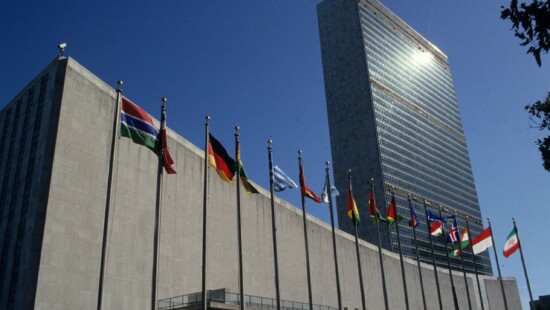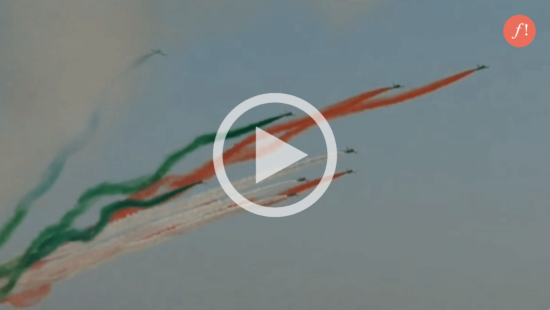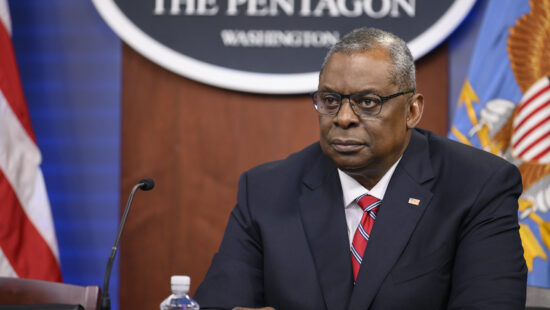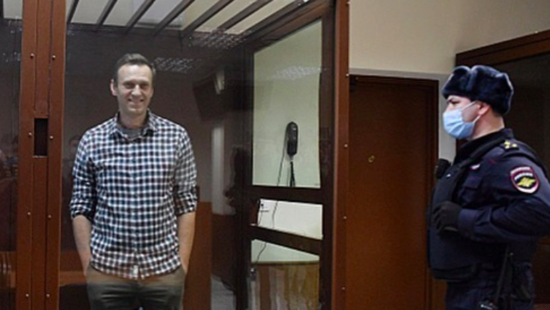Nessuno o quasi ne parla, ma si sta preparando in questa calda estate una stangata prossima ventura sui redditi dei pensionati di cui solo i “barracuda esperti” si renderanno conto. L’analisi di Giuseppe Pennisi
Archivi
Perché l'Italia non deve partecipare a Durban 20. Scrive Bepi Pezzulli
Presenziare ai lavori infliggerebbe un vulnus alla stabilità regionale, alla sicurezza internazionale e alla democrazia liberale, offrendo la copertura reputazionale di Roma alla delegittimazione dello Stato ebraico. L’opinione di Bepi Pezzulli
Le Frecce Tricolori festeggeranno i 60 anni il 18 e 19 settembre. Il video
Le Frecce Tricolori festeggeranno i 60 anni il 18 e 19 settembre [embedyt] https://www.youtube.com/watch?v=ummpXggUwSw[/embedyt] Rivolto, 25 ago. (askanews) - Le "Frecce tricolori" festeggeranno il loro 60simo anniversario all'aeroporto di Rivolto (Ud), dove ha sede il 313esimo Gruppo addestramento acrobatico, il 18 e il 19 settembre 2021 e lo farà nel pieno rispetto delle norme anti-Covid19. L'Aeronautica Militare sta mettendo a…
Sviluppo sostenibile, le pagelle di Nord, Centro e Sud
Il progresso italiano verso gli obiettivi di sviluppo sostenibile mostra performance differenti a livello delle singole regioni. Una recente ricerca ha confermato la distanza tra il Nord e il Sud del Paese. Il Mezzogiorno, però, fa progressi nel rispetto dell’ambiente. L’analisi di Stefano Cianciotta, presidente Abruzzo Sviluppo SpA, e Idiano D’Adamo, docente universitario Sapienza
Così Austin ringrazia la Difesa italiana. Le parole del capo del Pentagono
Il segretario della Difesa degli Stati Uniti, Lloyd J. Austin, ha voluto elogiare personalmente le Forze armate italiane per il supporto fornito dai nostri militari all’operazione americana di evacuazione dell’Afghanistan, onorando gli stretti legami diplomatici e militari tra gli Usa e l’Italia
Bombe a Kabul. Cosa si sa dell'attentato all'aeroporto
Un’esplosione davanti a uno dei cancelli dell’aeroporto della capitale afghana: ci sarebbero morti e feriti. Il Pentagono conferma. La minaccia descritta da giorni dagli americani si è fatta realtà
Senza sonno e cibo. Navalny racconta gli abusi in carcere (e non solo)
Il leader dell’opposizione in Russia rilascia la sua prima intervista da quando è in prigione. Al New York Times racconta del cibo, dei compagni di cella, degli obblighi quotidiani, del futuro di Putin e la strategia del presidente per le elezioni di settembre…
E se Biden avesse vinto? Parla Charles Kupchan
Intervista a Charles Kupchan, politologo americano e senior fellow del Council on Foreign Relations (Cfr). Per Biden l’Afghanistan una sconfitta di breve periodo, nel lungo hanno molto più da perdere Xi e Putin. L’Europa deve stare attenta al G20, con la Cina da sola non ce la fa
I Talebani visti dall’Iran. Obiettivo stabilità
Secondo Bassiri Tabrizi, esperta di Iran del RUSI di Londra, il rapporto tra Teheran e i Talebani ruoterà attorno a una necessità pragmatica dei primi: mantenere condizioni di stabilità
Quello che l'Europa non ha fatto in Afghanistan. Il commento di Malgieri
Cosa avrebbe dovuto e potuto fare l’Unione europea in Afghanistan, prima di arrivare all’epilogo di questi giorni con il ritiro delle truppe americane (e non solo)? Se lo domanda Gennaro Malgieri nella sua riflessione

















